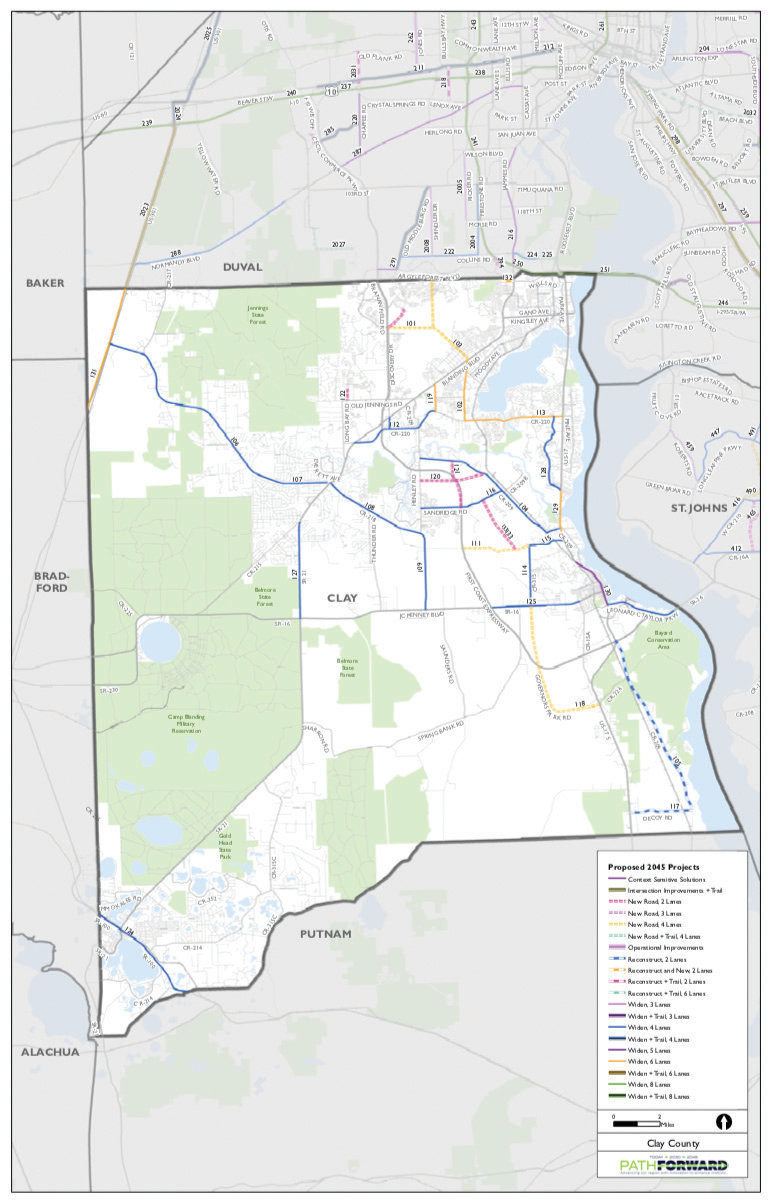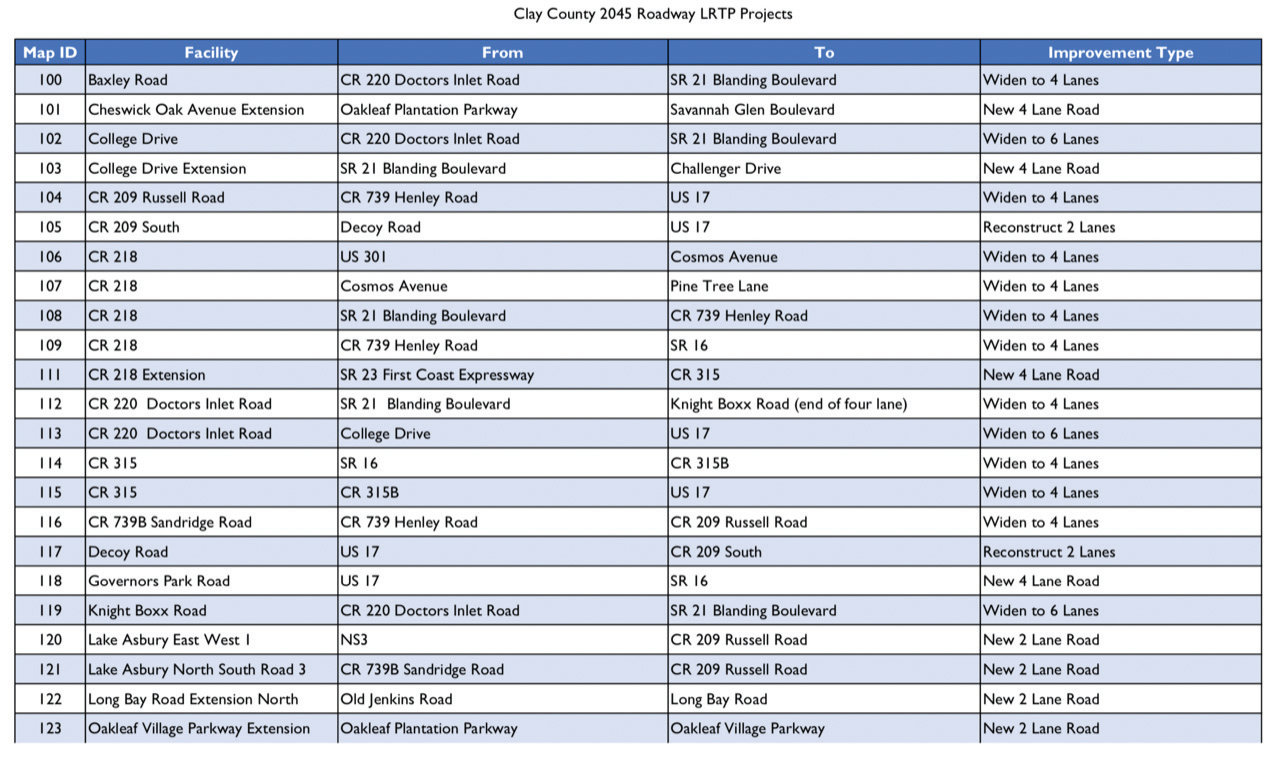County looking 25 years down the road to address transportation
CLAY COUNTY – The North Florida Transportation Planning Organization has updated their long-range transportation plan, and void of budgetary and permitting restrictions, the county will look vastly …
This item is available in full to subscribers.
Attention subscribers
To continue reading, you will need to either log in to your subscriber account, or purchase a new subscription.
If you are a current print subscriber, you can set up a free website account and connect your subscription to it by clicking here.
If you are a digital subscriber with an active, online-only subscription then you already have an account here. Just reset your password if you've not yet logged in to your account on this new site.
Otherwise, click here to view your options for subscribing.
Please log in to continueDon't have an ID?Print subscribersIf you're a print subscriber, but do not yet have an online account, click here to create one. Non-subscribersClick here to see your options for subscribing. Single day passYou also have the option of purchasing 24 hours of access, for $1.00. Click here to purchase a single day pass. |
County looking 25 years down the road to address transportation
CLAY COUNTY – The North Florida Transportation Planning Organization has updated their long-range transportation plan, and void of budgetary and permitting restrictions, the county will look vastly different in as few as 10 years.
The TPO is required by the Federal Highway Administration to update its long-range transportation plan every five years. This year the plan has been updated to include the year 2045, which includes programs ranging from bikes to cars to autonomous vehicles.
“So, the purpose of this plan is to maintain and continue to enhance and add to the regional transportation system as our transportation needs continue to change based on forecasting on future growth,” Transportation Program Manager Wiley Page said.
Page said Clay County is expecting extensive growth stemming from the completion of the First Coast Expressway which will create new exits for residents and businesses. The current growth will strain existing roads which is why it’s imperative federal roads be enhanced and extended within the next 10 years, Page said.
Page said one of the most important aspects of this plan are the trends in transportation. Millennials place less importance on achieving their own form of mobility than any generation before it, according to Page. They’re less likely to have a driver’s license because they feel less inclined to own a vehicle. This is because there are avenues of transportation that allow people without a vehicle to get where they need to go.
Things like Uber and Lyft have made it drastically easier to reach a destination. Autonomous vehicles are on the rise as well and Page said that roadways across the nation will need to address that trend.
“We are always trying to look at changing mobility trends,” Page said. “We’re going toward autonomous vehicles. We’re looking at more technology in our automobiles and along our roadways and we’re looking at what types of projects and programs are going to be needed to continue down that path.”
With sustained growth Clay County is expecting, Page said the area should develop more extensive bus and rail pathways, along with smarter walking and bike programs.
“Florida unfortunately runs over and kills more walkers and bikers than any other state and we’re looking at ways to fix that with safety projects,” Page said.
Page said that if the TPO had a blank check and zero permitting issues, the 2045 plan could be completed in 10 years. If so, County Road 218 would be widened to four lanes, Doctors Inlet would be widened, College Drive would be extended and there would a connector between county roads 218 and 315.
Page said much of the 2045 plan includes needs rather than wants, but the 218-315 connector is necessary as the First Coast Expressway nears completion.
Commissioner Wayne Bolla said the county should look into working parallel to the TPO’s plan to increase efficiency and lower costs.
“When local governments are making those investments, we can partner that money and make those investments go further,” Page said. “You can do things faster than the (Department of Transportation) and the FHA can obviously so with any of these projects, start to finish, if we had all of the money in the bank and no permitting issues, 10 years from beginning to end.
“Local governments can do it in half that time.”
Commissioner Mike Cella said the county should tagalong with the TPO.
“Bottom line, if we take (the TPO) with us, then we’re able to see where we can take advantage of that,” he said.











